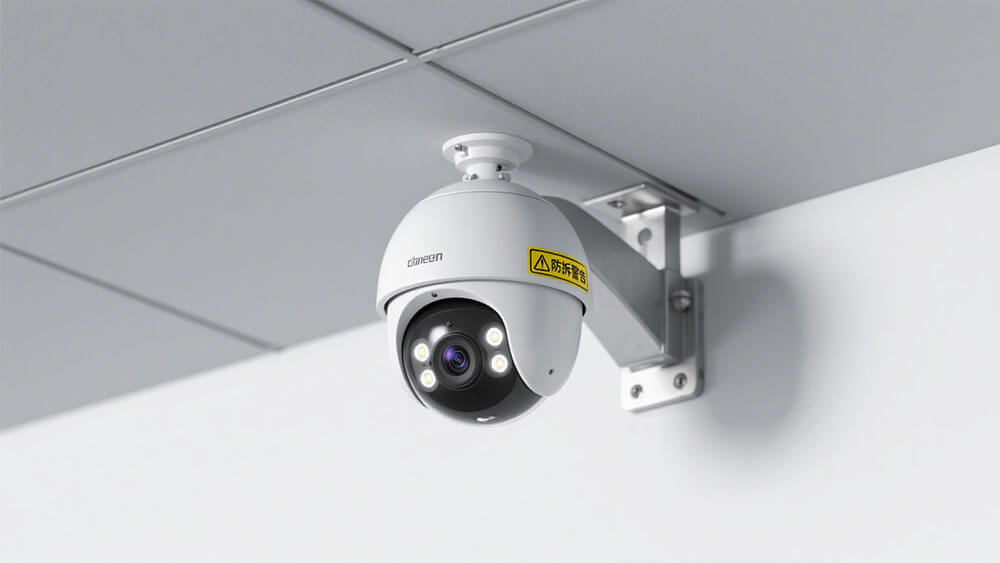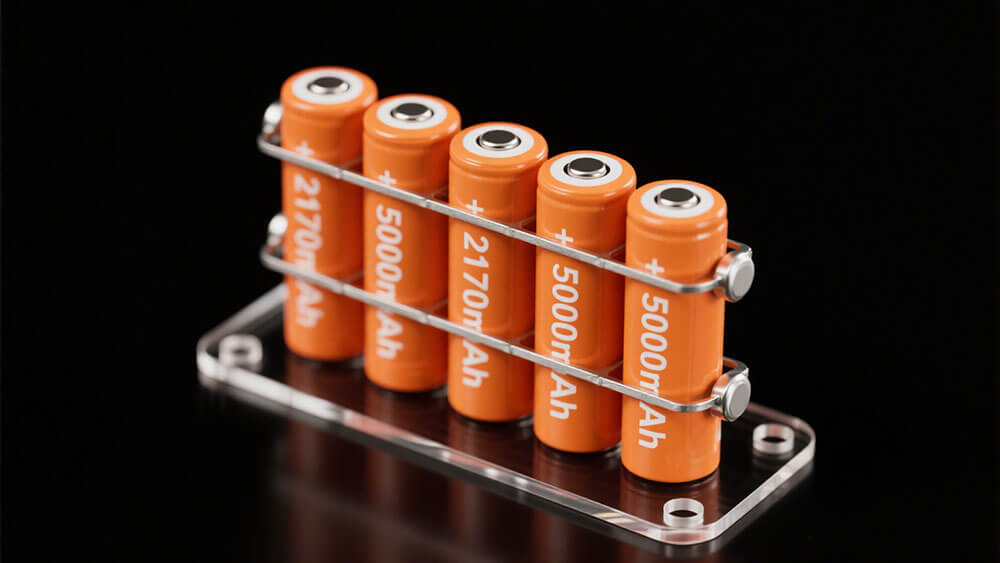
You demand reliable operation from your cameras, especially when deploying lithium batteries in outdoor security cameras. Lithium aa batteries set the industry standard for powering cameras in harsh environments. Most outdoor cameras rely on lithium batteries in outdoor security cameras to ensure consistent performance. Lithium aa batteries support cameras through extreme conditions. Cameras equipped with lithium batteries in outdoor security cameras outperform those using other chemistries. Lithium aa batteries deliver power to cameras even during temperature swings. Many security professionals trust lithium batteries in outdoor security cameras for their unmatched stability. Cameras with lithium aa batteries minimize downtime. You expect cameras to function in all weather. Cameras using lithium batteries in outdoor security cameras maintain uptime and reduce the need for frequent maintenance.
Key Takeaways
Lithium batteries keep outdoor security cameras running reliably in extreme temperatures and harsh weather, ensuring continuous protection.
These batteries provide steady power and long runtime, reducing the need for frequent replacements and minimizing camera downtime.
Using lithium batteries saves money over time by lasting longer and supporting advanced camera features like night vision and motion detection.
Part 1: Benefits of Lithium Batteries in Outdoor Security Cameras

1.1 Extreme Temperature Performance
You need your cameras to function in all weather conditions. Lithium batteries in outdoor security cameras deliver reliable operation in both freezing winters and scorching summers. Unlike alkaline batteries, lithium AA batteries maintain stable voltage and capacity even when temperatures drop below -20°C or rise above 60°C. This cold weather performance ensures your cameras do not lose power during critical moments.
Tip: Lithium batteries offer superior temperature resistance, making them ideal for outdoor cameras deployed in unpredictable climates.
Industry standards such as UL 1642 and IEC 62133-2 certify lithium battery packs for safe use in extreme environments. These certifications guarantee that your security systems meet global safety and reliability benchmarks.
1.2 Consistent Power Output
You rely on consistent power to keep your cameras running without interruption. Lithium batteries in outdoor security cameras provide a steady voltage throughout their discharge cycle. This consistent power output supports advanced camera features like night vision, motion detection, and wireless connectivity.
When you compare lithium AA batteries to alkaline alternatives, you see a clear advantage in battery performance. Alkaline batteries often experience voltage drops that can cause cameras to malfunction or shut down unexpectedly. Lithium AA batteries, on the other hand, deliver reliable operation and prevent these disruptions.
Battery Type | Platform Voltage | High Energy Density | Cold Weather Performance | Extended Lifespan |
|---|---|---|---|---|
Lithium AA | 1.5V | Yes | Excellent | Yes |
Alkaline AA | 1.5V (drops quickly) | No | Poor | No |
1.3 Long Runtime and High Energy Density
You want your cameras to operate for months without frequent battery changes. Lithium batteries in outdoor security cameras offer high energy density, which translates to longer battery life and fewer maintenance cycles. This extended lifespan reduces operational costs and minimizes downtime for your security systems.
Lithium AA batteries support long operational life, making them the preferred choice for remote or hard-to-reach installations. Their high energy density allows you to deploy cameras in locations where regular maintenance is challenging. In security, medical, and industrial sectors, this advantage ensures continuous monitoring and protection.
Note: Lithium batteries significantly enhance system uptime by providing a reliable and continuous power source. Their long cycle life and fast charging capabilities help maintain constant surveillance, even during power interruptions.
1.4 Lightweight and Compact Design
You benefit from the lightweight and compact design of lithium AA batteries. This feature simplifies installation and maintenance, especially when you need to deploy multiple cameras across large outdoor areas. The reduced weight of lithium battery packs also makes them suitable for applications in robotics, infrastructure, and consumer electronics.
Lithium batteries in outdoor security cameras allow you to design flexible and scalable surveillance systems. Their compact size enables integration into modern, slim camera housings without sacrificing battery life or performance.
If you require custom battery solutions for your security operations, consider consulting with a battery specialist to optimize your system for maximum uptime and efficiency.
Part 2: Why Lithium AA Batteries Are Preferred

2.1 Reliability in Harsh Environments
You face unpredictable conditions when deploying cameras outdoors. Lithium aa batteries deliver unmatched reliability for wireless security cameras in environments where temperature, humidity, and exposure to the elements threaten system uptime. You can trust these batteries to maintain stable performance in locations such as highways, parking lots, construction sites, and oil or pipeline operations. Dragonfly Energy documents thousands of successful deployments of lithium battery-powered off-grid solar systems for outdoor security cameras. These systems operate autonomously, even where grid access is impractical. You reduce dependence on generators and avoid costly trenching. Lithium aa batteries provide long-lasting power, ensuring your cameras remain active and responsive.
Note: Lithium aa batteries resist corrosion and humidity, which protects your cameras from environmental damage and extends operational life.
You benefit from robust battery packs that withstand vibration, dust, and moisture. This reliability supports critical surveillance in industrial, medical, and infrastructure applications. You minimize maintenance visits and maximize system uptime.
2.2 Cost-Effectiveness Over Time
You want to optimize your investment in security infrastructure. Lithium aa batteries offer significant cost savings over time compared to alkaline or nickel-based alternatives. You experience fewer battery replacements due to their extended lifespan and high cycle life. Rechargeable aa batteries further reduce operational costs by allowing multiple charge-discharge cycles.
Battery Type | Platform Voltage | Energy Density (Wh/kg) | Cycle Life (cycles) | Typical Battery Life (months) |
|---|---|---|---|---|
Lithium AA | 1.5V | 250 | 1000+ | 6-12 |
Alkaline AA | 1.5V (drops) | 100 | N/A | 1-3 |
Rechargeable AA (NiMH) | 1.2V | 60 | 500-700 | 2-6 |
You see clear advantages in battery life and performance. Lithium aa batteries last up to four times longer than alkaline batteries in outdoor cameras. You spend less on replacements and maintenance, which improves your bottom line. Rechargeable aa batteries provide additional flexibility for high-usage scenarios, such as continuous video recording demands.
Tip: Choose lithium aa batteries for remote installations to minimize service calls and maximize return on investment.
2.3 Impact on Camera Features
You rely on advanced features to protect assets and monitor activity. Lithium aa batteries support cameras with high power requirements, including night vision, motion detection, and wireless connectivity. You maintain consistent performance, even during peak video recording demands. Stable voltage output ensures cameras do not experience interruptions or degraded image quality.
You benefit from extended runtime, which allows cameras to operate for months without battery changes. This capability is essential for medical, robotics, and industrial sectors, where downtime can compromise safety or productivity. Lithium aa batteries enable you to deploy cameras in compact housings, supporting modern designs without sacrificing battery life.
Note: Consult with a battery specialist to customize lithium battery packs for your specific camera models and operational needs.
You protect your investment by choosing batteries that resist humidity and corrosion. Lithium aa batteries help you maintain reliable surveillance, reduce maintenance, and support advanced camera features.
You trust lithium batteries to keep cameras running in harsh environments.
Cameras with lithium AA batteries deliver long runtime and stable power.
Cameras in medical, robotics, and industrial sectors rely on lithium battery packs.
Cameras using lithium batteries reduce downtime.
Cameras benefit from reliable performance.
Cameras support advanced features.
Cameras maintain uptime.
Cameras in infrastructure and security systems need lithium batteries.
Cameras with lithium batteries offer long-term value.
Cameras achieve superior reliability.
FAQ
1. What makes lithium battery packs ideal for outdoor cameras in industrial sectors?
Lithium battery packs deliver stable voltage, high energy density, and long cycle life. You achieve reliable operation for cameras in harsh industrial environments.
2. How can you customize lithium battery packs for medical or robotics applications?
You can request a tailored solution from Large Power’s custom battery consultation page. Click for custom consultation to meet specific technical and operational needs.
3. How do lithium battery packs compare to alkaline batteries for security system cameras?
Chemistry | Platform Voltage | Energy Density (Wh/kg) | Cycle Life (cycles) |
|---|---|---|---|
Lithium Battery | 1.5V | 250 | 1000+ |
Alkaline Battery | 1.5V (drops) | 100 | N/A |
Tip: Lithium battery packs outperform alkaline batteries in uptime and reliability for security system cameras.




